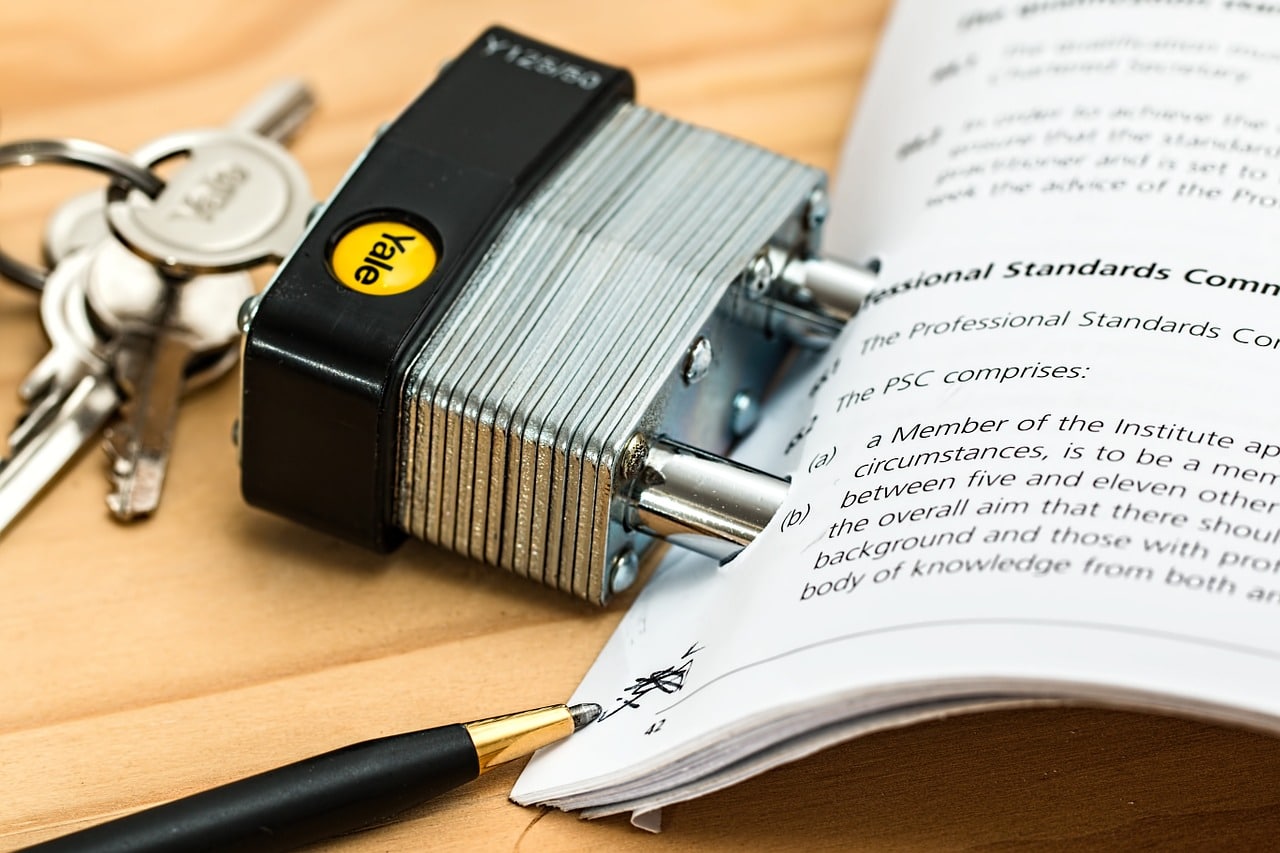The distributor contract is a big point of contention between craft breweries and distributors. Before any beer is delivered, the contract has to be reviewed, debated, negotiated, and eventually signed.
The challenge with most contracts is that both parties want the terms to be in their favor. Breweries want options to get out of the contract, and freedom to move their brand if the business relationship isn’t working.
Distributors want the brewery to be committed to them indefinitely. From the distributor perspective, they invest millions or tens of millions, in infrastructure and want to be sure that brands stay on the trucks to pay for all the investment.
Both parties want the advantage, but at a minimum, neither party wants to get screwed by the contract.
With so much emphasis on the distributor contract, what steps are you taking to ensure you get the best arrangement possible?
Below I’ve outlined five steps you can take to improve your contracts, and contractual relationships.
Five Steps to a Better Contract
- Seek first to understand: Basic contract structure and terms
- Know your state laws
- Do your research, ask questions, determine the distributor options
- Play a game you can win – Develop your own standard contract.
- Self-distribute – Enter into a contract with yourself
Here’s where I must add the standard disclaimer: I’m not an attorney, and this is not legal advice. The guidance here should be used for informational purposes only. However, I have reviewed hundreds of distributor contracts, and worked with numerous attorneys on interpretation and review of the documents. OK, enough of that stuff, now on to the details of how to get a better distributor contract.
#1 Basic Contract Structure and Terms
As any business textbook will tell you, the primary purpose of contract law is to enforce an agreement between parties. In this case, the parties are the distributor and craft brewery. For there to be a contract, an agreement must exist and the parties must have freely intended to be legally obligated. A breach occurs when one party breaks a big promise in the agreement.
The requirements of a legally binding contract are: 1) offer, 2) acceptance, 3) consideration, 4) obligations by parties, 5) competency and capacity, and 6) a written document.
In other words, a wholesaler offers to distribute the beer of a craft brewery, and the brewery accepts. The brewery agrees to brew beer and sell it to the wholesaler. The wholesaler agrees to pay for it. The brewery is obligated to make a saleable product, and the wholesaler is obligated to sell it. Both brewery and wholesaler state they are competent and have the capacity to fulfill these obligations. All this is then wrapped up in a written contract.
The distributor contract contains a variety of clauses and terms that you should understand: Trademarks, Terms of Sale, Assignment, Transfer, Ownership Changes, and Termination to name a few. A typical distributor contract can be 20 pages in length, and contain a dozen or more different clauses. It’s a lot to understand, but very important to do so.
In a future article, I’ll dig into these clauses in more detail. For now, start by reading over the contracts that you already have in place. Highlight any items that you don’t understand and start asking questions. What you don’t know can hurt you in a contract situation.
#2 Know Your State Laws
Thanks to the 21st amendment, we have 50 different sets of laws related to alcohol distribution. Many of those laws are difficult to understand and a giant bore to read. Get a lawyer, and get a common sense interpretation of what your state laws are. Specifically, know your rights and obligations.
The Brewer’s Association does a nice job in summarizing the various state laws. However, the summary only scratches the surface of what you’ll need to know about the rules of engagement. Know the rules, use them to your advantage, and build them into an agreement that works best for your brewery.
Contracts and State Laws
Contracts and state laws are often intertwined. There may be sections of the distributor contract that make reference to the applicable state laws. For example, ‘distributor or supplier may terminate this agreement in accordance with applicable state laws.’ An understanding of the state laws in combination with a working knowledge of contract rules will give you a leg up when negotiating your distributor contract.
Lastly, there is a common assumption that the contract really doesn’t matter that much because the state law will over-ride the contract anyway. For instance, in a case where a contract says one thing and the state law says another, the state law wins.
I’m not a lawyer, but I’ve hired lawyers to deal with this issue. What I’ve found is that the question doesn’t have a clear answer. Bottom line – the contract still matters.
#3 Do Your Research
When opening up new sales territories do your homework to find the best distributor partner. Talk to other craft breweries, talk to retail accounts (on and off premise), and of course meet with prospective distributors. Do your research to find your best match. There’s no point in learning about contracts and state laws if you wind up with a lousy partner.
Many of the larger craft breweries hire consultants to conduct market research in advance of opening up a new territory. The consultants talk to retailers, learn the nuances of the market, and find out who the best distributor is. Then they gather information and report back to the brewery with a recommendation.
Key Questions to Ask Your Distributor
You may not have the resources to hire a consultant, but you can do some leg work yourself. Below are sample questions to ask distributors during the research phase:
- How do you assess opportunities for my brands at retail?
- What is a recent example of a brand launch success?
- What are the demographics and tourism of the market?
- What is the pricing landscape?
- What did you do for craft beer week?
- Tell me about your draft line cleaning process and personnel. If line cleaning is not allowed by state law, ask what they do to ensure lines are cleaned (surveys, education) and to determine IF they are cleaned (logs, vendor and frequency of service)
Invest the time upfront and do you research on your distributor options. A contract helps define a partnership. It’s up to you to find the best distributor to partner with.
#4 Play a Game You Can Win
A wise friend once told me: “always write the contract.” In other words, if there is an option, don’t let the other side present you with a contract. Do it yourself.
Writing the contract ensures you have control over what gets included or excluded. It allows you to shape the language, and create an agreement that works best for your brewery. Have your lawyer develop your own standard contract. Talk with them about what’s important to include and what isn’t. Use your working knowledge of contract law and state laws to shape an agreement that works.
Use Your Leverage
When you meet with a distributor, simply present the document as a matter of fact: “This is our standard contract.” They may negotiate certain points, or counter with their own standard contract, but they might just sign what you give them.
Many craft breweries have their own contract these days, even the smaller guys. Craft breweries have leverage with distributors. If you have a brand that multiple distributors would like to have, they will make concessions on the terms of the contract to ensure they get your brand.
Recognize and understand where you have leverage, and use it to your advantage. Develop your own standard contract, include the terms you want, and insist that it is used to govern the distributor relationship.
#5 Self-Distribute: Enter into a Contract with Yourself
Another option related to distributor contracts is to avoid them altogether and self-distribute your own beer. State laws will dictate whether you can do this, and what the guidelines are.
There are many advantages of distributing your own beer: you keep the gross profit that normally goes to the distributor, you control where and how the brands are presented at retail, and you ensure the brands get 100% focus and attention. Despite best efforts, a distributor with hundreds of brands can’t possibly present your beer during every sales call. But you can.
There are many challenges with self-distribution: increased capital costs for trucks and warehouse space, more people needed to sell and deliver the beer, and a new business model that you need to learn. Nothing wrong with learning, but it can be expensive.
The fundamental question to ask is whether self-distribution can be profitable. To answer the question, check out the short guide on creating a financial pro forma for self-distribution. This will walk you through the steps of putting together your sales projections, expected margins, operating costs, and capital investments needed.
Research your state distribution laws, do the financial analysis, and determine if self-distribution is the right move for your brewery.
Wrap up
The distributor contract is important, and it’s important that you get it right. Understand the contract terms and know the state laws. Do your research on the market and the distributor options. Create your own standard contract and use your brand leverage to get the distributor to sign it. Lastly, explore whether a self-distribution option makes sense for your craft brewery.
It’s up to you to find a great distributor partner. It’s up to you to ensure you have a good agreement that governs the relationship. Use the steps outlined here, talk to other craft breweries and consult your attorney. A good distributor contract is within your power to achieve. Now, go and get it.





